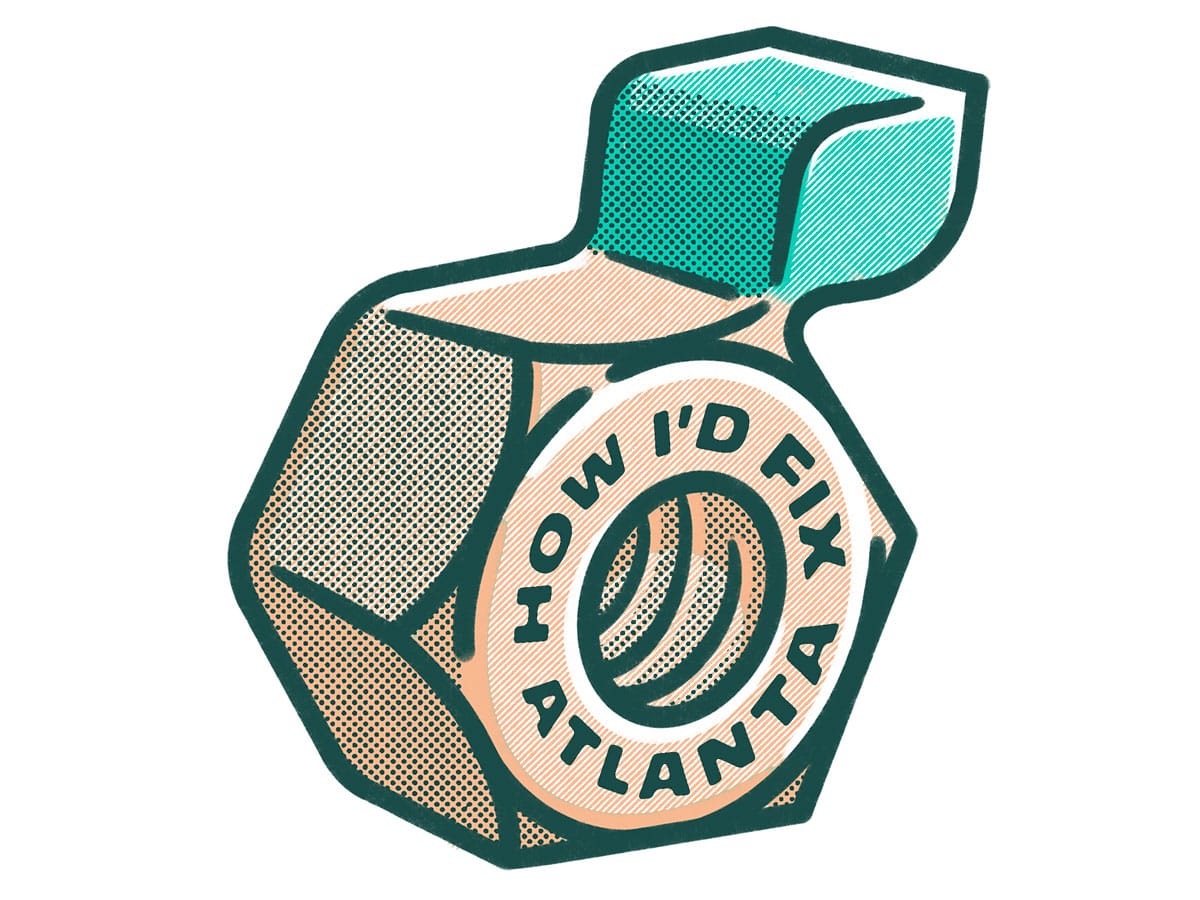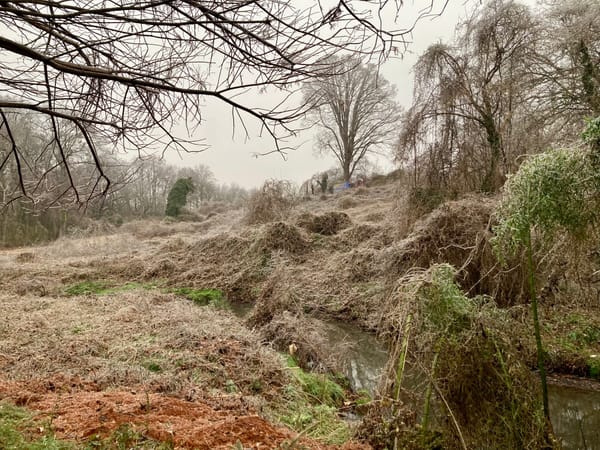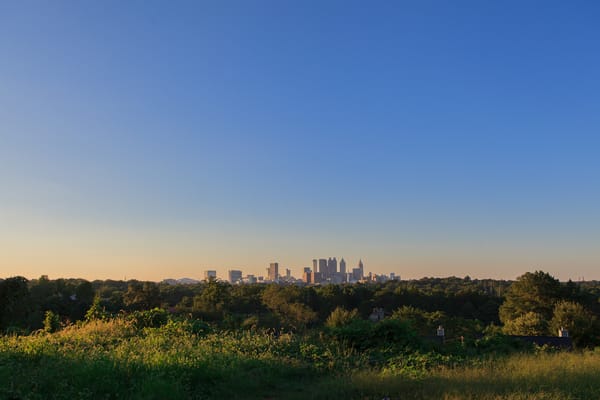How Matthew Shaer Would Fix Atlanta
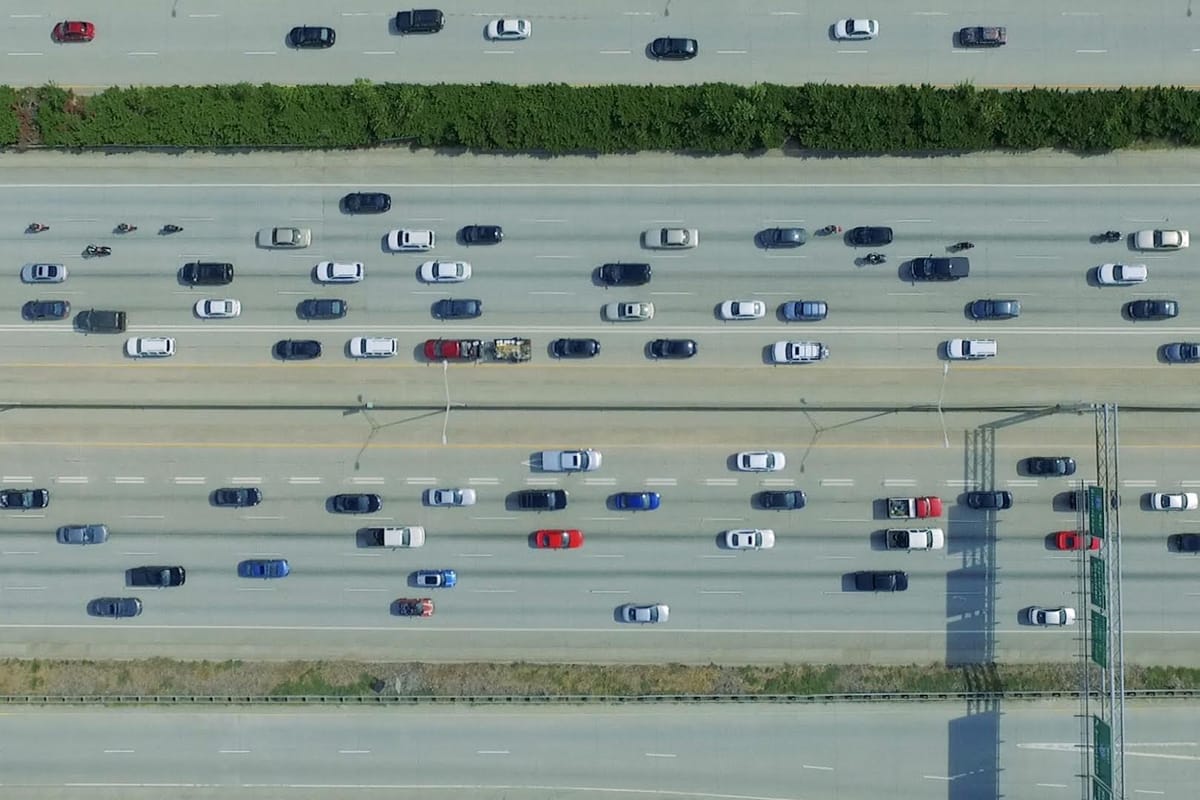
How I’d Fix Atlanta — Make the Roads Safer For All Of Us
Matthew Shaer
I grew up in the suburbs of Boston, where “Masshole” is a term of endearment and aggressive driving is a point of regional pride. By the time I moved to Georgia, almost a decade ago, after a stretch in New York (a city with its own uniquely antagonistic road culture), I assumed I’d already seen the absolute worst a human being could do behind the wheel.
Folks, I was wrong.
Nothing, I’m now certain, can adequately prepare one for the realities of moving in and around Atlanta. Even now, as I type these words, a Furiosa-flavored carnival of horrors unspools in my mind. The road rage shootings. The blinker-less lane changing. The collisions and pile-ups and car fires. The felony-level speeding on residential roads. The drunk Republican lawmakers running over people in bike lanes. The impatience. The seething, barely-suppressed rage.
And above all, the tailgating, which has become so commonplace that half the time, drivers don’t even seem to know they’re doing it.
All this shitty behavior adds up—and perilously so. Last year, only three states had more road fatalities than Georgia. Those states are Florida, California, and Texas—each of which has a population that dwarfs our own. Meanwhile, ATL-specific stats are no more encouraging: Between 2018 and 2022, the Georgia Department of Transportation logged an astonishing 182,521 car crashes inside city limits, with I-20 being particularly deadly for local drivers.
We’re slamming into each other on highways. We're driving our cars into bike-lane bollards. We’re careening into each on surface roads. We’re ping-ponging into each other in parking lots and on bypasses. We’re yelling at pedestrians while sitting in our cars. We’ve become a city where the streets are unsafe for pretty much everyone—and that’s no good for anyone.
The good news is that we know how to make it better.

Earlier this year, I reported a story for The New York Times Magazine about the national uptick in car crashes since 2020. Without exception, the dozens of experts I interviewed agreed on the causes of the surge in road deaths—bigger and faster cars, angrier drivers, road infrastructure conducive to terrible behavior—and also the potential solutions, which happen to be eminently reproducible in our city and state.
Let’s start with the long-term strategies, and more specifically, with a much-needed re-engineering of our—fast, broken, and frequently-bike-lane-less—streets. I’m thinking here of an expansion of the type of roundabouts recently installed near Emory, and of the well-executed throttling (which is to say: narrowing) that Decatur has accomplished on the roads near the square. Features like these, and the additional implementation of stop and yield signs and lights, slow the pace of traffic, and help force drivers to pay attention to what’s right in front of them. Ditto concrete “islands” that give pedestrian shelter while discouraging dangerous games of real-life Frogger.
At the same time, officials across the city should take a very hard look at long, curving boulevards such as Candler, which make it far too easy for drivers to attain Formula One speeds. Complaints will be inevitable (the furor on Nextdoor over the Decatur throttling was a sight to behold), but the evidence shows that the more you can break up roads and the more features you erect, the fewer people die.
It’s simple math.
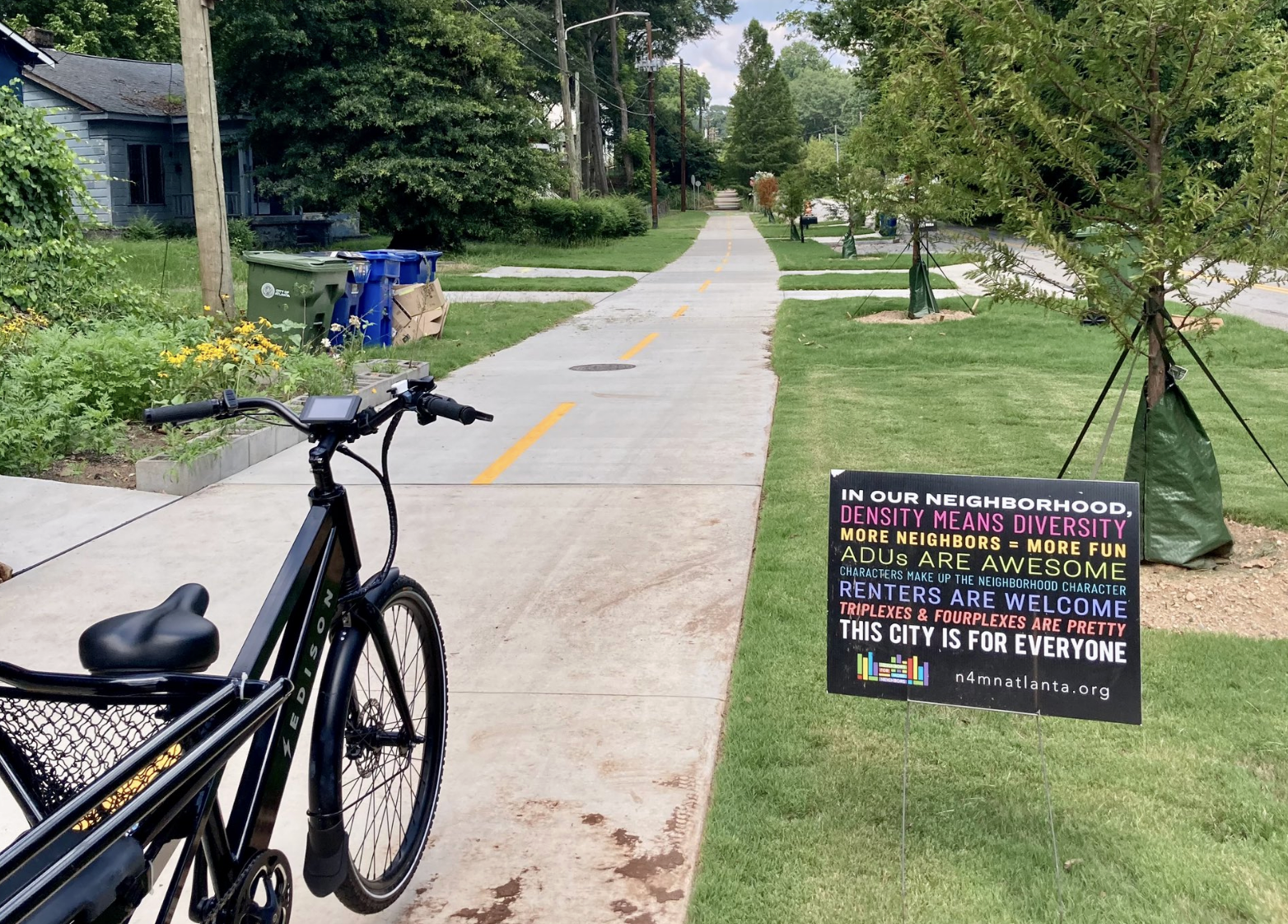
As we move to reduce our automobile dependency in myriad ways, we need more people on bikes, and a reliable fleet of rentals is only part of the fix. More bike lanes—ideally “protected” ones, with a sturdy curb blocking cars from infringing onto cyclists’ territory—will encourage ATLiens to ride instead of driving, especially when it comes to shorter trips.
Atlanta is a bicycling city, but we’re only just getting started.
Several states currently offer tax rebates for the purchase of e-bikes; Atlanta has rolled out a program of its own, the first round of which was quickly gobbled up by ATL residents. A second round of applicants was accepted in late August. Here’s hoping there will be many more rounds in the years to come. With a population of north of six million people in the metro area, the potential for a program like this is bonkers.
Next, our state government should invest in more road safety public awareness campaigns—whether online or on TV and radio—and in better road education for all Georgians. As it stands now, drivers in the Peach State are required to take 30 hours of training before obtaining a license, though that training can be entirely online. They are also required to have 40 hours of driving time with a parent or guardian, but those hours are self-reported and easy to fudge.
All of this is why I admired a recent proposal from State Representative Imani Barnes to require all public schools in the state to offer at least one driver’s education elective. Yes, Barnes acknowledged, in announcing the bill, there are plenty of private driver schools. And yet, “some people cannot access those services.” (Unfortunately, the bill died a quick death in the GOP-led state legislature.)
Finally, in the shorter-term, we should consider possibly the most immediately efficacious way to achieve calmer roads—but we should go into it with open eyes, and with a full understanding of the potential drawbacks. I’m thinking here of automated enforcement by speed camera, a tactic that has worked extraordinarily well in Europe and, on this side of the pond, in New York. Data shows that the presence of speed cameras alone almost immediately pulls down speeding rates in covered areas, as drivers learn, often the hard way, what awaits them if they floor it past an active unit.
There are plenty of completely valid reasons to be skeptical of the technology, not least of all because ATL is already one of the most surveilled cities in the country. Traffic citations can drive low-income people into debt, and in extreme circumstances, lead to the suspension of their drivers’ licenses. Libertarians hate the idea, as do a lot of progressives. And yet, compared to putting more police on the streets, or encouraging more traffic stops (a common instigating event for police shootings), ticketing-by-camera is safer, more affordable, and far easier to enact.
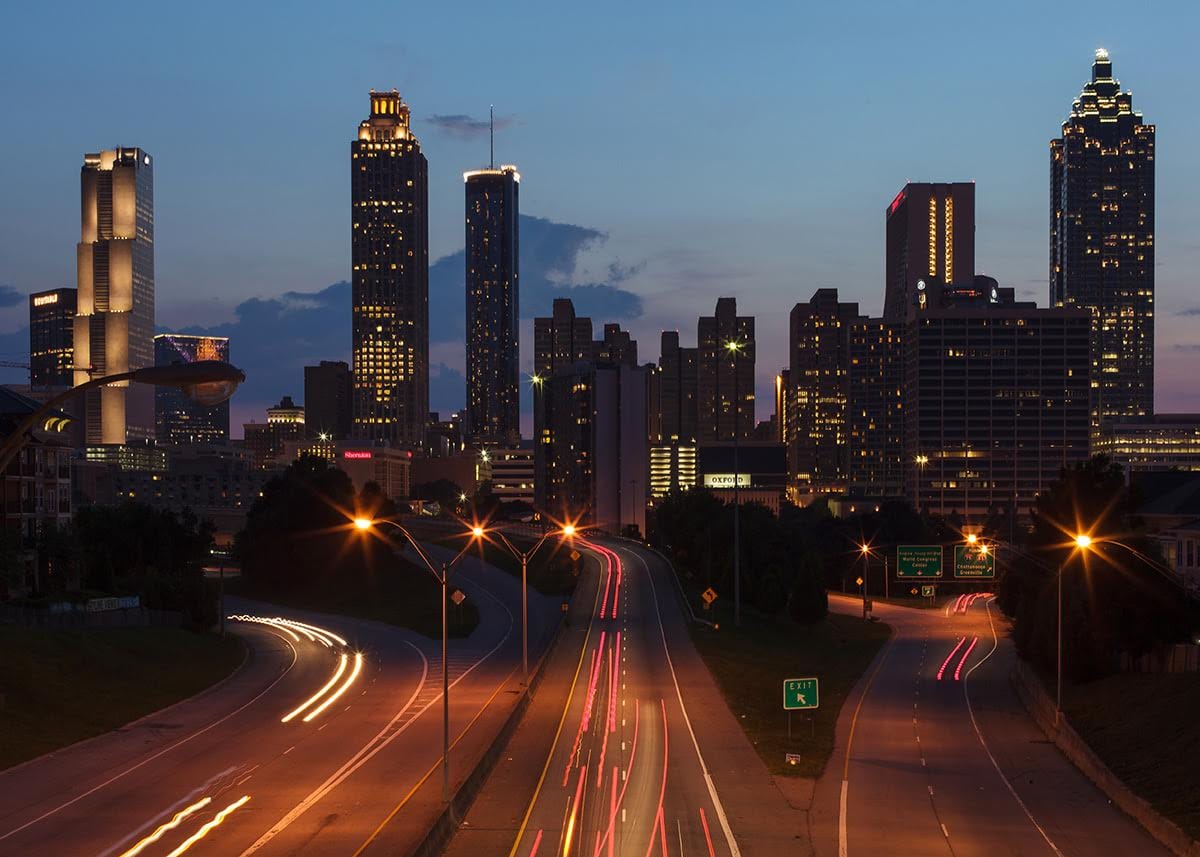
Overall, I want ATL to steal from the playbook of states and regions that have reduced traffic fatalities by some combination of everything I’ve outlined above: more public awareness campaigns and better driver education; intelligently-engineered roads that accommodate cars but also pedestrians, cyclists, and scooters; and yes, maybe a network of speed cams.
In the regions that have made driver safety a priority by doing all this stuff, crash rates are still well above acceptable rates, but they’re coming down—and fast. Just take a look at Massachusetts, which in 2022 racked up a relatively small 6.9 car-related fatalities per 100,000 people—the lowest per capita rate in the entire nation.
Trust me on this one: If the Massholes can do it, so can we.
Matthew Shaer is a writer-at-large for The New York Times Magazine, an Emerson Fellow at New America, and a co-founder of the podcast company Campside Media. He lives in Decatur with his wife, two daughters, and a beagle named Salty Dog.
How I'd Fix Atlanta is an essay series by ATLiens for ATL. In each of these pieces, a thoughtful human argues for one way we could make our city better. Sometimes the ideas will be serious. Other times? A little more lighthearted. From infrastructure to food trucks, public transit to wildflowers, nothing is off limits.
How I’d Fix Atlanta was created by Austin L. Ray. It's a free newsletter sent on a Thursday of most months. It's also an annual zine that costs money. Sometimes it’s a performance on a stage. Other times, it’s a fundraiser. Occasionally it's featured on a podcast or cited by a venerable publication. How I’d Fix Atlanta is large, it contains multitudes.
Each writer is paid $700 for their essay. Wanna help support the series? Reply to this email to learn more about sponsorship opportunities.
Oh, look! Here's some more stuff:
- Major shoutout to all 200 or so of you who came out to our recent How I'd Fix Atlanta Hang at Piedmont Park to drink beer, eat snacks, listen to smart people read, and ask those smart people great questions. It was a blast. Shoutout to Gray Chapman and Thomas Wheatley for reading. Shoutout to Kaycee Walker for organizing. Shoutout to shouts. Let's do it again soon.
- I recently wrote an essay about TV on the Radio and how hard it is to make art for a living for Welcome to Hell World. Give it a read, let me know what you think. Luke is doing some amazing stuff over there at Hell World, so throw some money his way if you can.
- My buddy Vince has been making cannoli for Gaza lately. Here's what you should do: follow him on Twitter, and be ready when the pre-orders hit at 5pm this evening. They will go fast. Good luck.
- We're doing something awesome on Monday. Get ready.
